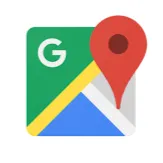Google Maps Scraper Orchestrator
Pricing
Pay per usage
Go to Apify Store

Google Maps Scraper Orchestrator
Run multiple locations and search terms together with parallel runs for maximum speed.
Pricing
Pay per usage
Rating
5.0
(3)
Developer

Lukáš Křivka
Maintained by Apify
Actor stats
20
Bookmarked
300
Total users
14
Monthly active users
1.6 days
Issues response
4 months ago
Last modified
Categories
Share

